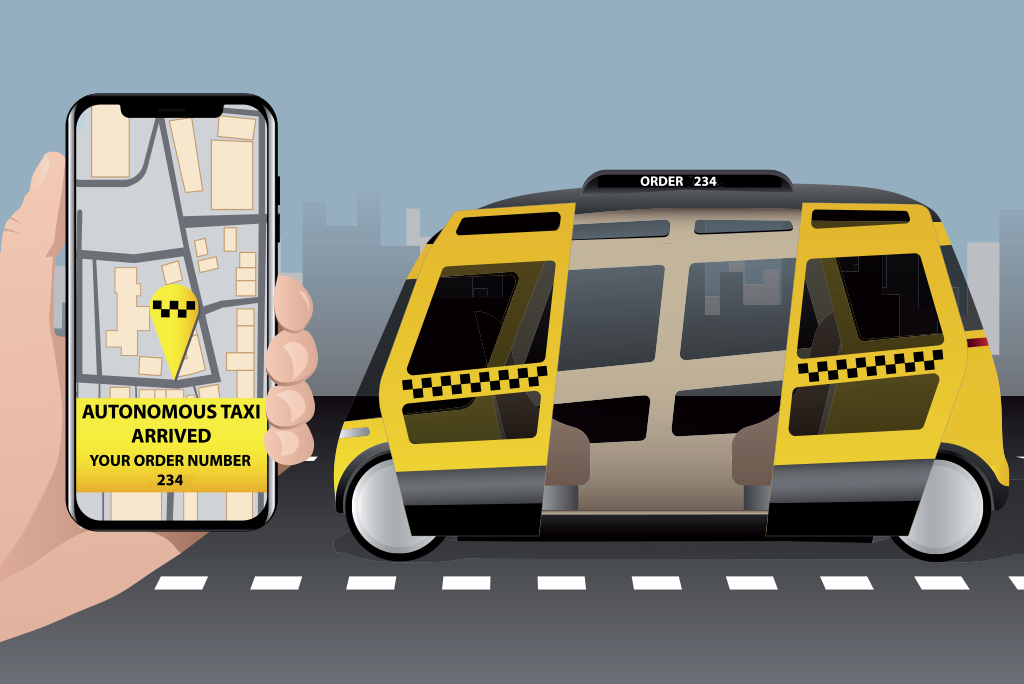 The COVID-19 pandemic has forced many autonomous vehicle (AV) manufacturers to delay or rethink their pilot testing programs. What’s more, the security features and infrastructure needed to make automotive vehicles function effectively, such as high-bandwidth 5G wireless networks, are not yet available on a large scale and may also be delayed.
The COVID-19 pandemic has forced many autonomous vehicle (AV) manufacturers to delay or rethink their pilot testing programs. What’s more, the security features and infrastructure needed to make automotive vehicles function effectively, such as high-bandwidth 5G wireless networks, are not yet available on a large scale and may also be delayed.
Pandemic-related delays are likely to lengthen the strict AV testing regimes that were already expected to take years (although simulation technology may help speed the process). At the same time, people are ordering goods online more than ever before. This is creating a surging demand for “contactless” delivery services. As a result, some experts think autonomous delivery systems, such as self-driving trucks and delivery robots, may be a more near-term reality. Some companies are even working to develop flying autonomous taxis such as “Uber Air”. These small, four-passenger aircrafts are similar to helicopters, but they fly close to the ground. Because there is a greater number of employees working remotely, some are choosing to move to where they want to live without office location being as much of a deciding factor. Airborne taxis are increasingly seen as a solution for those who still have to go to the office on occasion rather than a daily commute.
AV Companies Launch Pilot Programs in China and the U.S.
Some manufacturers are revving up their AV pilot programs despite the pandemic. In China, autonomous taxi startups AutoX and Didi have already launched their testing programs on the road. The companies hope to prove their AV taxis are road-ready by 2023. The government is also investing heavily in AV technology. China is unfurling a 62-mile expressway between Beijing and nearby Xiong’an with specific lanes dedicated to AV vehicles. The expressway is expected to open next year.
In the U.S., Amazon-acquisition Zoox recently announced that it received a testing permit from the California Department of Motor Vehicles (DMV) for its driverless vehicles, making it the fourth company to obtain one. The permit will allow the company to test a minimum of two AVs on the road in Foster City, California without a human driver.
Argo, a Pittsburgh-based startup, and Waymo, based in San Francisco, are also working hard to prepare road-ready vehicles. Both companies are training their sensor-equipped vehicles to follow basemaps, which are precise scans of roadways. While this may help solve the navigational issues that plague self-driving technology, it would limit AVs to only being able to navigate mapped roadways. Additionally, it would also create a reliance on maps, which means that they will need to be continuously updated.
It may take years for fully autonomous vehicles to make their debut, but many of today’s vehicles already come with an impressive level of automation. Advanced driver assistance systems (ADAS), high-tech computer processing, artificial intelligence, and high-tech sensors are all helping human drivers navigate the road, making them safer and more efficient than ever before.
Prepare for an Autonomous Future
Prepare your organization for the latest developments in AV technology with training in foundational and practical applications. Developed by leading experts in the field, the IEEE Guide to Autonomous Vehicle Technology is an online seven-course training program.
Connect with an IEEE Content Specialist today to learn more about purchasing the program for your organization.
Interested in purchasing the program for yourself? Access it through the IEEE Learning Network (ILN)!
Resources
Adams, Eric. (25 September 2020). Why we’re still years away from having self-driving cars. Vox.
Mullin, Larry. (24 September 2020). China’s cities will soon be crawling with self-driving robotaxis. Fast Company.
Wiggers, Kyle. (18 September 2020). Zoox gains approval to test autonomous vehicles without safety drivers in California. Venture Beat.
Lekach, Sasha. (3 September 2020). What coronavirus means for the future of self-driving cars. Mashable.


No comments yet.